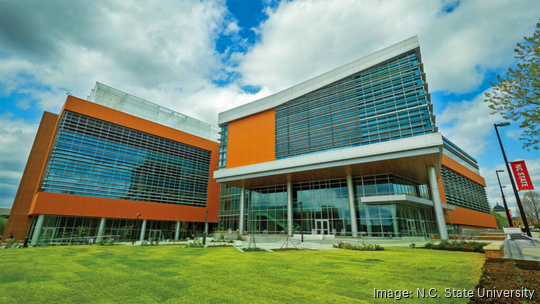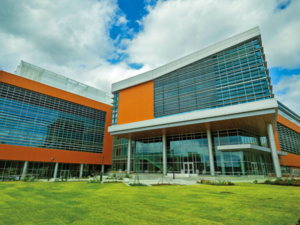
An initiative at N.C. State is launching multiple efforts to help startups in the ag-tech and food-tech space.
The N.C. Plant Sciences Initiative has formed a startup program that will help researchers and alumni turn ideas and discoveries into viable products. The initiative is also opening an incubator space within the 185,000-square-foot Plant Sciences Building, a roughly $160 million investment that opened on Centennial Campus in 2022.
The initiative brings together researchers from various disciplines across the university, such as life sciences and engineering, who are focused on addressing some of the most significant challenges affecting agriculture in the state and around the world. A focus on entrepreneurship is part of the initiative's strategic plan, said Kathleen Pitcher, the program's director of innovation partnerships.
Pitcher joined the initiative in June after 10 years working in industry. This includes five years at Bayer, three years with BASF and then time at a few local startups, including Tiamat Sciences Corp. and Biomason. In this new role, Pitcher is focused on supporting partnerships between the initiative and industry and support entrepreneurship.
"We want to take technologies and get it into the hands of growers," Pitcher said.
The first step is a startup program aimed at helping early-stage, pre-seed round companies identify and fill gaps in their business. The program provides startups with space access to the Plant Sciences Building, and potentially its incubator space, in addition to high-level mentoring and assistance from industry and entrepreneurship experts.
This includes helping startups connect with funding sources like grants and eventually venture capital, as well as support for startups developing business plans that identify potential customers and their needs. This is an area of need for young companies coming out of the university, who may be led by university faculty members without experience in the private sector, Pitcher said.
A recently formed commercialization advisory council, which includes university and industry leaders, will oversee the portfolio of companies within this program. For companies to be eligible for the program, they must have intellectual property licensed from N.C. State or be owned by university faculty members, postdoctoral researchers or students or alumni who recently graduated.
These startups could also be eligible to take up space in an incubator that will open in April. This is a roughly 2,500-square-foot office and wet lab space within the Plant Sciences Building.
The incubator has space for three or four companies at a time, with each startup likely spending up to 18 months in the incubator, Pitcher said. It's a space these startups can use for research and meetings as they begin raising funds and getting their companies off the ground, Pitcher said. The initiative is in discussions with three companies that could serve as its initial cohort for the incubator.
The initiative's efforts around startups and commercialization can benefit groups both in and outside the university, said Adrian Percy, executive director of the N.C. Plant Sciences Initiative.
"Some of these small companies will evolve and mature into larger companies that will hire people that will be producing products that benefit not just our citizens in North Carolina, but also more broadly across the U.S. and even globally one day," Percy said.


